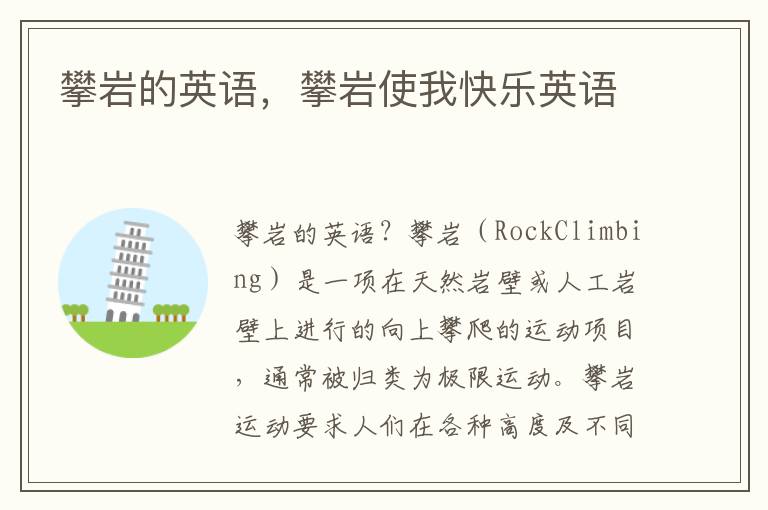【简介】感谢网友“雕龙文库”参与投稿,这里小编给大家分享一些[db:SEO标题],方便大家学习。
Only a fool would make firm assertions about the future. How many pundits writing at the dawn of 1913 predicted the oncoming first world war, let alone two such wars that almost finished off European civilisation? What one can do is examine the implications of trends already in evidence.
只有傻子才会对未来言之凿凿。有多少权威在1913年初撰文时预言一战即将爆发?更别提预言两场几乎毁灭欧洲文明的全球战争了。人们所能做的只是从初露端倪的迹象中判断趋势指引。
It may be worth starting with the German writer Oswald Spengler who published in 1918-1923 an alarmist book, The Decline of the West . He was not so much wrong as premature. And like many “declinists he failed to see that a decline in relative position was compatible with high and even rising western living standards.
或许我们有必要从德国作家奥斯瓦尔德·斯彭格勒(Oswald Spengler)说起。斯彭格勒在1918年到1923年期间发表了一部杞人忧天的著作《西方的没落》(Decline of the West)。与其说斯彭格勒是错误的,还不如说他不成熟。与许多“衰落主义者一样,斯彭格勒未能看到的是,西方相对地位下降的同时,其生活水平仍可以很高,甚至不断上升。
Indeed, what has to be explained is not the west’s looming relative decline but its temporary pre-eminence. Of a world population approaching 7bn, the US and western Europe together account for a mere 770m. Their gross domestic product per head – a very approximate guide to living standards – is three times the world average. Such discrepancies can hardly be expected to last in an increasingly globalised planet. In 1500, just after Christopher Columbus’s voyages of discovery, China and India were both estimated to have had a total GDP considerably higher than western Europe’s and GDP per head only slightly lower. Earlier still, in about 1000, living standards were fairly uniform – and low – throughout the world but the estimates show China slightly in the lead.
实际上,真正需要解释的不是西方相对地位为何不可避免地下降,而是其为何会暂时占据优势地位。全球人口接近70亿,而美国和西欧加起来仅有7.7亿人口。它们的人均国内生产总值(GDP)(这一指标可近似地衡量生活水平)是全球平均水平的三倍。在一个日益全球化的星球上,很难指望如此大的差异会持续下去。在克里斯托弗·哥伦布(Christopher Columbus)刚刚完成航海发现的1500年,中国和印度的GDP据估计均高于西欧,而人均GDP只是略低于西欧。在更早的1000年左右,世界各国的生活水平基本一样,而且都很低,但估计表明,中国稍稍领先。
The reversal towards an earlier norm has already started. Emerging and developing countries now account, for the first time in the modern era, for about half of total world output. Historians have offered endless explanations for the west’s temporary surge: religions that put more emphasis on the individual and his activities in this life; an intellectual climate more favourable to scientific thought; property rights that safeguarded acquisitions of wealth; less autocratic forms of government. The list is endless and doubtless all these elements played a part. In the late 18th century the government of England’s George III sent a trade mission to China, only to be rebuffed by the Chinese emperor who declared that his country had everything it required and did not need western trinkets.
向早期常态的回归已经开始。新兴和发展中国家目前占到全球产出总额的一半左右,这在现代历史上还是第一次。历史学家为西方国家暂时性的迅猛崛起提供了无数的解释:更注重个人及其现世活动的宗教信仰;更有利于科学思考的知识氛围;捍卫财富获取的财产权;较民主的政府形式。原因还有很多,所有这些因素无疑都发挥了作用。在18世纪末,英王乔治三世(George III)向中国派出了贸易使节,结果却遭到中国皇帝的拒绝——这位皇帝宣称,中国拥有一切所需的东西,不需要西方的小玩意。
But such attitudes could hardly be expected to last, faced with the evidence of an increasing western lead. What the west initiated the others would follow; and eventually began to initiate on their own.
但随着西方日益占据主导地位,此类态度不可能持续下去。其他国家将对西方的创举亦步亦趋,并最终开始自己的创举。
Global Turning Points, by Mauro F. Guillén and Emilio Ontiveros, decisively refutes rash prophecies that China will dominate the remainder of the 21st century. It may or may not acquire the largest GDP, but this will be only a large fraction of the GDP of a multipolar world. There are many other growing centres of economic power. In addition to the well known Brics – Brazil, Russia, India and China – we now have the Mints – Mexico, Indonesia, Nigeria and Turkey.
马洛·F·纪廉(Mauro F. Guillén)和埃米利奥·翁蒂韦罗斯(Emilio Ontiveros)在他们合著的《全球转折点》(Global Turning Points)一书中,断然驳斥了中国将在21世纪剩余时期主宰全球的轻率预言。中国的GDP或许会、也或许不会达到全球第一,但也只不过是在这个多极世界的GDP总额中占据较大份额罢了。全球还有其他许多不断壮大的经济实力中心。除了众所周知的“金砖国家(Brics,巴西、俄罗斯、印度和中国)以外,我们现在还有“薄荷糖国家(Mints,墨西哥、印尼、尼日利亚和土耳其)。
The apparent ascendancy of China is largely a matter of population. In terms of living standards the country has a long way to go. GDP per head is still only a third that of western Europe and a quarter that of the US. As Guillén and Ontiveros say, it is quite likely that during most of the 21st century India will be the biggest country in terms of population, China in total output, but the US will remain the largest in terms of output and income per head. Catch-up takes a long time.
中国地位的显著上升基本上与人口规模有关。就生活水平而言,中国还有很长的路要走。中国人均GDP水平仍然只有西欧的三分之一和美国的四分之一。正如纪廉和翁蒂韦罗斯所言,在21世纪的大部分时期,印度很有可能是全球人口最多的国家,中国总产值可能全球最高,但美国将依然是人均产值和人均收入最高的国家。中国要赶上美国需要很长时间。
More surprising is not the economic catch-up but the changed direction of capital flows. During most of the past century development writing was full of concern about how to raise capital flows and/or western aid for what was then known as the third world. Hardly anyone foresaw that the problem would be reversed and that emerging and developing countries would have savings surpluses on which the old industrial world now relies to finance its current account and budget deficits.
更令人意外的不是经济上的追赶,而是资本流动方向的改变。在上世纪的大部分时期,发展文献论述的全都是如何为当时所称的第三世界增加资本流入以及(或者)西方援助。几乎没有人预料到,问题将会逆转,新兴和发展中国家将拥有储蓄盈余,而旧日的工业化国家现在反而依赖这些盈余来为其经常账户和预算赤字融资。
This western dependency on the rest of the world would be reduced, but not eliminated, if in times of recession western governments were less worried about borrowing directly from their own central banks.
如果西方国家的政府在衰退时期对直接向本国央行借钱减少顾虑的话,这种西方依赖全球其他国家的情形将会减少,但不会消失。
Many commentators see the reverse flow out of developing countries as unnatural, by which they mean immoral. There are clearly special factors at work such as state management of the Chinese economy and the large surpluses of oil producers. But these do not look like going into reverse at all soon, and we had all better learn to live with the new direction of capital flows, which is apparently known in academic literature as the Lucas Paradox.
许多评论员认为发展中国家的资本倒流是不自然的(他们其实是说这不道德)。这里显然有一些特殊因素的影响,比如中国经济的政府管理和石油生产国的巨额盈余。但这些因素看起来不会很快发生逆转,我们最好学会适应这种新的资本流动方向——在学术著作中,这似乎被称为“卢卡斯之谜(Lucas Paradox)。
The intriguing question is what the emerging nations will do with their accumulating surpluses. There are already many signs that they have had their fill on holdings of dollars and other western currencies that earn low or even negative real interest rates. The next stage is both portfolio investment and direct investment in areas such as Africa, but also in America and Europe. For the moment, they can be assured of a welcome but what will happen as their stake grows?
有趣的问题是,新兴国家将如何处理它们日益累积的盈余。目前已经有许多迹象表明,它们已经厌倦了持有收益很低、甚至实际利率为负的美元和其他西方货币。下一阶段它们将不仅在非洲等地区进行证券投资和直接投资,而且还要在美国和欧洲投资。就目前而言,它们一定会受到欢迎,但随着它们投资规模的增长,情况又会如何?
There are almost bound to be tensions. Zillions of words have already been written about the declining real power of western governments. Even more will need to be written as they become responsible for ever smaller proportions of their own economies. The main sufferers are not likely to be ordinary citizens, but the hitherto governing and business classes.
几乎必然会出现紧张关系。有关西方国家政府实际权力日益下降的论述已有很多。由于它们对本国经济份额日益下降负有责任,还会有更多这类论述。主要受害者不太可能是普通民众,而是当前的治理和商业阶层。
Only a fool would make firm assertions about the future. How many pundits writing at the dawn of 1913 predicted the oncoming first world war, let alone two such wars that almost finished off European civilisation? What one can do is examine the implications of trends already in evidence.
只有傻子才会对未来言之凿凿。有多少权威在1913年初撰文时预言一战即将爆发?更别提预言两场几乎毁灭欧洲文明的全球战争了。人们所能做的只是从初露端倪的迹象中判断趋势指引。
It may be worth starting with the German writer Oswald Spengler who published in 1918-1923 an alarmist book, The Decline of the West . He was not so much wrong as premature. And like many “declinists he failed to see that a decline in relative position was compatible with high and even rising western living standards.
或许我们有必要从德国作家奥斯瓦尔德·斯彭格勒(Oswald Spengler)说起。斯彭格勒在1918年到1923年期间发表了一部杞人忧天的著作《西方的没落》(Decline of the West)。与其说斯彭格勒是错误的,还不如说他不成熟。与许多“衰落主义者一样,斯彭格勒未能看到的是,西方相对地位下降的同时,其生活水平仍可以很高,甚至不断上升。
Indeed, what has to be explained is not the west’s looming relative decline but its temporary pre-eminence. Of a world population approaching 7bn, the US and western Europe together account for a mere 770m. Their gross domestic product per head – a very approximate guide to living standards – is three times the world average. Such discrepancies can hardly be expected to last in an increasingly globalised planet. In 1500, just after Christopher Columbus’s voyages of discovery, China and India were both estimated to have had a total GDP considerably higher than western Europe’s and GDP per head only slightly lower. Earlier still, in about 1000, living standards were fairly uniform – and low – throughout the world but the estimates show China slightly in the lead.
实际上,真正需要解释的不是西方相对地位为何不可避免地下降,而是其为何会暂时占据优势地位。全球人口接近70亿,而美国和西欧加起来仅有7.7亿人口。它们的人均国内生产总值(GDP)(这一指标可近似地衡量生活水平)是全球平均水平的三倍。在一个日益全球化的星球上,很难指望如此大的差异会持续下去。在克里斯托弗·哥伦布(Christopher Columbus)刚刚完成航海发现的1500年,中国和印度的GDP据估计均高于西欧,而人均GDP只是略低于西欧。在更早的1000年左右,世界各国的生活水平基本一样,而且都很低,但估计表明,中国稍稍领先。
The reversal towards an earlier norm has already started. Emerging and developing countries now account, for the first time in the modern era, for about half of total world output. Historians have offered endless explanations for the west’s temporary surge: religions that put more emphasis on the individual and his activities in this life; an intellectual climate more favourable to scientific thought; property rights that safeguarded acquisitions of wealth; less autocratic forms of government. The list is endless and doubtless all these elements played a part. In the late 18th century the government of England’s George III sent a trade mission to China, only to be rebuffed by the Chinese emperor who declared that his country had everything it required and did not need western trinkets.
向早期常态的回归已经开始。新兴和发展中国家目前占到全球产出总额的一半左右,这在现代历史上还是第一次。历史学家为西方国家暂时性的迅猛崛起提供了无数的解释:更注重个人及其现世活动的宗教信仰;更有利于科学思考的知识氛围;捍卫财富获取的财产权;较民主的政府形式。原因还有很多,所有这些因素无疑都发挥了作用。在18世纪末,英王乔治三世(George III)向中国派出了贸易使节,结果却遭到中国皇帝的拒绝——这位皇帝宣称,中国拥有一切所需的东西,不需要西方的小玩意。
But such attitudes could hardly be expected to last, faced with the evidence of an increasing western lead. What the west initiated the others would follow; and eventually began to initiate on their own.
但随着西方日益占据主导地位,此类态度不可能持续下去。其他国家将对西方的创举亦步亦趋,并最终开始自己的创举。
Global Turning Points, by Mauro F. Guillén and Emilio Ontiveros, decisively refutes rash prophecies that China will dominate the remainder of the 21st century. It may or may not acquire the largest GDP, but this will be only a large fraction of the GDP of a multipolar world. There are many other growing centres of economic power. In addition to the well known Brics – Brazil, Russia, India and China – we now have the Mints – Mexico, Indonesia, Nigeria and Turkey.
马洛·F·纪廉(Mauro F. Guillén)和埃米利奥·翁蒂韦罗斯(Emilio Ontiveros)在他们合著的《全球转折点》(Global Turning Points)一书中,断然驳斥了中国将在21世纪剩余时期主宰全球的轻率预言。中国的GDP或许会、也或许不会达到全球第一,但也只不过是在这个多极世界的GDP总额中占据较大份额罢了。全球还有其他许多不断壮大的经济实力中心。除了众所周知的“金砖国家(Brics,巴西、俄罗斯、印度和中国)以外,我们现在还有“薄荷糖国家(Mints,墨西哥、印尼、尼日利亚和土耳其)。
The apparent ascendancy of China is largely a matter of population. In terms of living standards the country has a long way to go. GDP per head is still only a third that of western Europe and a quarter that of the US. As Guillén and Ontiveros say, it is quite likely that during most of the 21st century India will be the biggest country in terms of population, China in total output, but the US will remain the largest in terms of output and income per head. Catch-up takes a long time.
中国地位的显著上升基本上与人口规模有关。就生活水平而言,中国还有很长的路要走。中国人均GDP水平仍然只有西欧的三分之一和美国的四分之一。正如纪廉和翁蒂韦罗斯所言,在21世纪的大部分时期,印度很有可能是全球人口最多的国家,中国总产值可能全球最高,但美国将依然是人均产值和人均收入最高的国家。中国要赶上美国需要很长时间。
More surprising is not the economic catch-up but the changed direction of capital flows. During most of the past century development writing was full of concern about how to raise capital flows and/or western aid for what was then known as the third world. Hardly anyone foresaw that the problem would be reversed and that emerging and developing countries would have savings surpluses on which the old industrial world now relies to finance its current account and budget deficits.
更令人意外的不是经济上的追赶,而是资本流动方向的改变。在上世纪的大部分时期,发展文献论述的全都是如何为当时所称的第三世界增加资本流入以及(或者)西方援助。几乎没有人预料到,问题将会逆转,新兴和发展中国家将拥有储蓄盈余,而旧日的工业化国家现在反而依赖这些盈余来为其经常账户和预算赤字融资。
This western dependency on the rest of the world would be reduced, but not eliminated, if in times of recession western governments were less worried about borrowing directly from their own central banks.
如果西方国家的政府在衰退时期对直接向本国央行借钱减少顾虑的话,这种西方依赖全球其他国家的情形将会减少,但不会消失。
Many commentators see the reverse flow out of developing countries as unnatural, by which they mean immoral. There are clearly special factors at work such as state management of the Chinese economy and the large surpluses of oil producers. But these do not look like going into reverse at all soon, and we had all better learn to live with the new direction of capital flows, which is apparently known in academic literature as the Lucas Paradox.
许多评论员认为发展中国家的资本倒流是不自然的(他们其实是说这不道德)。这里显然有一些特殊因素的影响,比如中国经济的政府管理和石油生产国的巨额盈余。但这些因素看起来不会很快发生逆转,我们最好学会适应这种新的资本流动方向——在学术著作中,这似乎被称为“卢卡斯之谜(Lucas Paradox)。
The intriguing question is what the emerging nations will do with their accumulating surpluses. There are already many signs that they have had their fill on holdings of dollars and other western currencies that earn low or even negative real interest rates. The next stage is both portfolio investment and direct investment in areas such as Africa, but also in America and Europe. For the moment, they can be assured of a welcome but what will happen as their stake grows?
有趣的问题是,新兴国家将如何处理它们日益累积的盈余。目前已经有许多迹象表明,它们已经厌倦了持有收益很低、甚至实际利率为负的美元和其他西方货币。下一阶段它们将不仅在非洲等地区进行证券投资和直接投资,而且还要在美国和欧洲投资。就目前而言,它们一定会受到欢迎,但随着它们投资规模的增长,情况又会如何?
There are almost bound to be tensions. Zillions of words have already been written about the declining real power of western governments. Even more will need to be written as they become responsible for ever smaller proportions of their own economies. The main sufferers are not likely to be ordinary citizens, but the hitherto governing and business classes.
几乎必然会出现紧张关系。有关西方国家政府实际权力日益下降的论述已有很多。由于它们对本国经济份额日益下降负有责任,还会有更多这类论述。主要受害者不太可能是普通民众,而是当前的治理和商业阶层。









